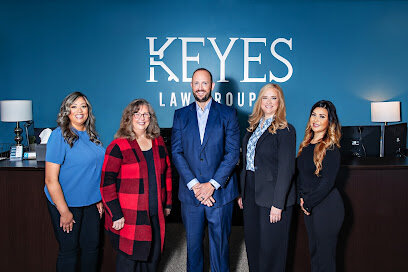Best Elder Abuse Law Lawyers in California
Share your needs with us, get contacted by law firms.
Free. Takes 2 min.
Or refine your search by selecting a city:
List of the best lawyers in California, United States
About Elder Abuse Law in California, United States
Elder abuse law in California exists to protect adults aged 65 years and older, as well as dependent adults between the ages of 18 and 64 who have physical or mental limitations that restrict their ability to protect themselves. Elder abuse can take many forms, including physical abuse, neglect, financial exploitation, abandonment, isolation, and psychological abuse. The laws surrounding elder abuse are primarily aimed at preventing harm, providing avenues for intervention, and allowing victims or their families to pursue justice and compensation. California has enacted comprehensive statutes to address these issues, especially under the Elder Abuse and Dependent Adult Civil Protection Act (EADACPA).
Why You May Need a Lawyer
There are several scenarios where someone might require the help of an attorney who focuses on elder abuse law in California. These include:
- Suspecting or witnessing signs of abuse or neglect in a nursing home or assisted living facility.
- Discovering unexplained injuries, financial losses, or sudden changes in an elder’s will or power of attorney.
- Having concerns about inadequate care from a caregiver, either at home or in an institution.
- Faced with the complexities of reporting abuse and navigating the investigation process with Adult Protective Services (APS) or law enforcement.
- Pursuing financial compensation for damages and losses suffered due to abuse or neglect.
- Responding to allegations if you have been wrongfully accused of elder abuse.
- Understanding and enforcing the legal rights of elderly or dependent adults in California.
Local Laws Overview
California’s elder abuse statutes are among the most comprehensive in the United States. Below are some key aspects of local law that are particularly relevant:
- Elder Abuse and Dependent Adult Civil Protection Act (EADACPA): This act allows elders and dependent adults, as well as their families, to bring lawsuits against individuals or entities responsible for abuse or neglect. It also permits recovery of damages, including punitive damages in extreme cases.
- Penal Code Section 368: This section makes it a specific crime to willfully cause or permit an elder or dependent adult to suffer, or inflict unjustifiable physical pain, mental suffering, or financial exploitation.
- Mandatory Reporting: Healthcare professionals, caregivers, and other mandated reporters are legally required to report suspected abuse or neglect. Failure to do so may result in criminal charges.
- Civil and Criminal Remedies: Victims or families can pursue both civil remedies (lawsuits for damages) and criminal prosecution against abusers or negligent parties.
- Protection Orders: Courts can issue restraining orders to protect the elderly or dependent adults from further harm or contact with alleged abusers.
- State Agencies: Agencies like Adult Protective Services (APS) and California Department of Social Services investigate reports of abuse and can offer protective interventions.
Frequently Asked Questions
What is considered elder abuse in California?
Elder abuse can be physical abuse, neglect, financial exploitation, emotional or psychological abuse, abandonment, or isolation of someone 65 years or older or a dependent adult.
How do I report suspected elder abuse?
You can report suspected abuse to Adult Protective Services (APS), local law enforcement, or the police. If it is an emergency, call 911 immediately.
Who must report elder abuse by law?
Mandated reporters include healthcare professionals, caregivers, social workers, law enforcement, and employees of long-term care facilities. However, any concerned person can make a report.
What penalties do abusers face in California?
Penalties can include jail or prison time, fines, restitution to victims, and civil liability for damages. Penalties are more severe if bodily injury or financial harm is involved.
Can I sue for financial abuse of an elder?
Yes, California law allows civil lawsuits against individuals or entities that financially exploit elders or dependent adults. Compensation may include damages and, in severe cases, punitive damages.
What is neglect under elder abuse law?
Neglect means the failure of a caregiver to provide things like adequate food, water, shelter, supervision, medical care, or protection from health and safety hazards.
What should I do if I am accused of elder abuse?
Seek legal representation immediately. Do not speak to investigators or the alleged victim without an attorney present. Understand that both criminal and civil liabilities may apply.
Are there time limits to file a lawsuit for elder abuse?
Yes, there are statutes of limitations. These depend on the type of abuse, whether it is physical, financial, or another form. Consult an attorney as soon as possible to avoid missing deadlines.
Can Power of Attorney be misused for elder abuse?
Unfortunately, yes. Financial elder abuse often involves misuse of legal authority such as Power of Attorney, resulting in unauthorized transfers or theft of assets. Legal remedies are available.
How can I prevent elder abuse?
Stay informed, regularly check on elderly loved ones, use reputable caregivers and facilities, and watch for warning signs of neglect or financial exploitation. Taking legal steps such as setting up proper trusts or oversight can also help.
Additional Resources
If you or someone you know needs help, consider these important resources:
- California Adult Protective Services (APS) - County-level agencies investigating abuse or neglect of elders and dependent adults.
- California Department of Social Services - Oversees statewide programs for elder and dependent adult protection.
- California Department of Justice, Bureau of Medi-Cal Fraud and Elder Abuse - Investigates and prosecutes abuse in care facilities.
- Long-Term Care Ombudsman Program - Advocates for residents of nursing homes and residential care facilities.
- Local law enforcement - Available for reporting criminal elder abuse or immediate danger situations.
- Aging and Adult Services Agencies - Provides information and referrals to support services for plaintiffs and their families.
Next Steps
If you suspect elder abuse or need legal advice, act promptly. Start by documenting all signs and evidence of abuse or neglect, such as photos, medical records, and financial statements. Report immediate dangers directly to 911 or law enforcement. For non-emergencies, file a report with Adult Protective Services (APS) or the appropriate county agency. Consider reaching out to an attorney who specializes in elder abuse law to understand your rights and options, receive guidance through the investigation and legal process, and to ensure the protection and well-being of your loved one. Consulting a legal professional is an essential step if you are navigating a complex situation or seeking compensation for harm suffered.
Lawzana helps you find the best lawyers and law firms in California through a curated and pre-screened list of qualified legal professionals. Our platform offers rankings and detailed profiles of attorneys and law firms, allowing you to compare based on practice areas, including Elder Abuse Law, experience, and client feedback.
Each profile includes a description of the firm's areas of practice, client reviews, team members and partners, year of establishment, spoken languages, office locations, contact information, social media presence, and any published articles or resources. Most firms on our platform speak English and are experienced in both local and international legal matters.
Get a quote from top-rated law firms in California, United States — quickly, securely, and without unnecessary hassle.
Disclaimer:
The information provided on this page is for general informational purposes only and does not constitute legal advice. While we strive to ensure the accuracy and relevance of the content, legal information may change over time, and interpretations of the law can vary. You should always consult with a qualified legal professional for advice specific to your situation.
We disclaim all liability for actions taken or not taken based on the content of this page. If you believe any information is incorrect or outdated, please contact us, and we will review and update it where appropriate.
Browse elder abuse law law firms by city in California
Refine your search by selecting a city.















